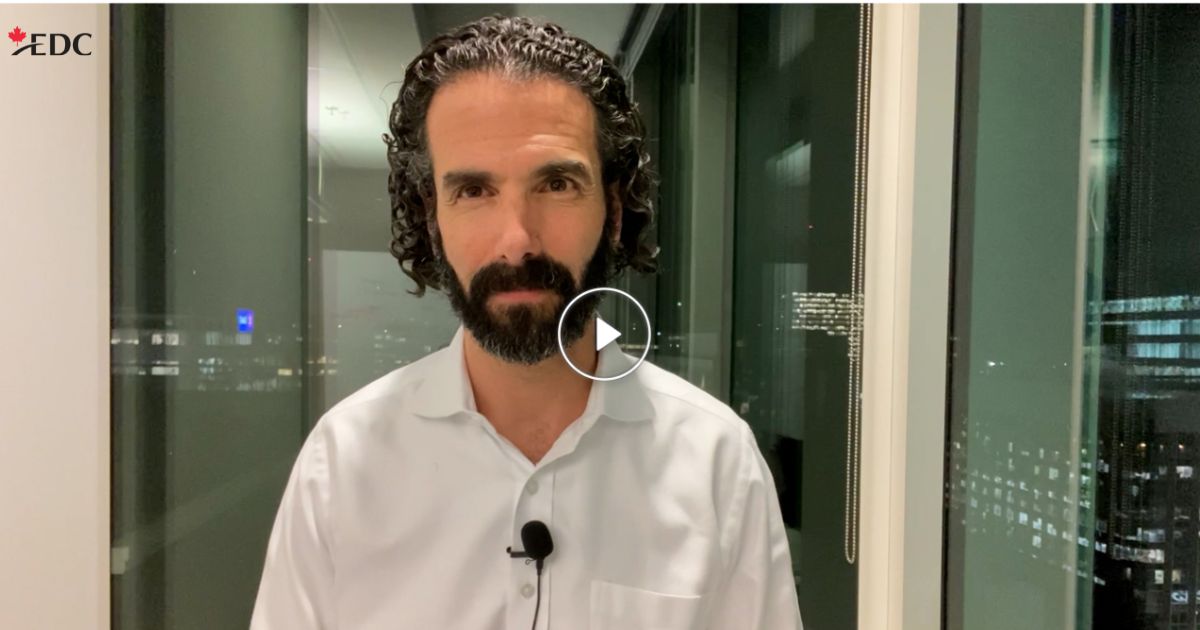“Although two steps forward and one step back may seem like a setback, it is still progress,” says Stuart Bergman, Chief Economist and Vice President at EDC, in his Economic Commentary. Bergman, who follows energy and climate policy in Europe, writes about the challenge of meeting both immediate energy needs and long-term goals for reducing fossil fuel emissions in the region.
In his analysis, Bergman discusses how the ongoing conflict in Ukraine and resulting sanctions on Russian oil exports have led to an increase in coal consumption in Europe this year.
To address Europe’s reliance on Russian fossil fuels and meet its climate goals, the European Commission has proposed increasing the EU’s renewable energy generation targets from 32% in 2018 to 45% in 2022. This large-scale shift towards renewables is expected to provide a long-term solution, while also helping to accelerate the EU’s climate policy. The increased use of clean technology would not only benefit the EU, but could also create opportunities for companies in other countries with similar goals.
Bergman’s reflections
Some have raised concerns about whether the European Union (EU) is retreating from its position as a global leader in the transition to net zero emissions. However, Bergman argues that the EU’s commitment to reducing emissions by 57% over the next five years is still a significant step forward, even though it may involve burning more fossil fuels in the short term. He explains that the EU’s long-term goals are not incompatible with meeting immediate energy needs.
However, it is the potential downstream impacts of the EU’s planned investments in renewable energy that really stand out to Bergman.
The recent agreement to ban the sale of internal combustion engine vehicles by 2035 suggests that the region is looking beyond its current energy insecurity and towards a more sustainable future.
This is positive news for countries with similar goals, such as Canada, as the EU works to strengthen its clean technology sector, potentially opening up opportunities for Canadian businesses.
Discover why Bergman thinks the EU’s practical approach to meeting energy needs while also implementing ambitious climate policies demonstrates that it can multitask, even if occasional setbacks impede its progress.



Responses